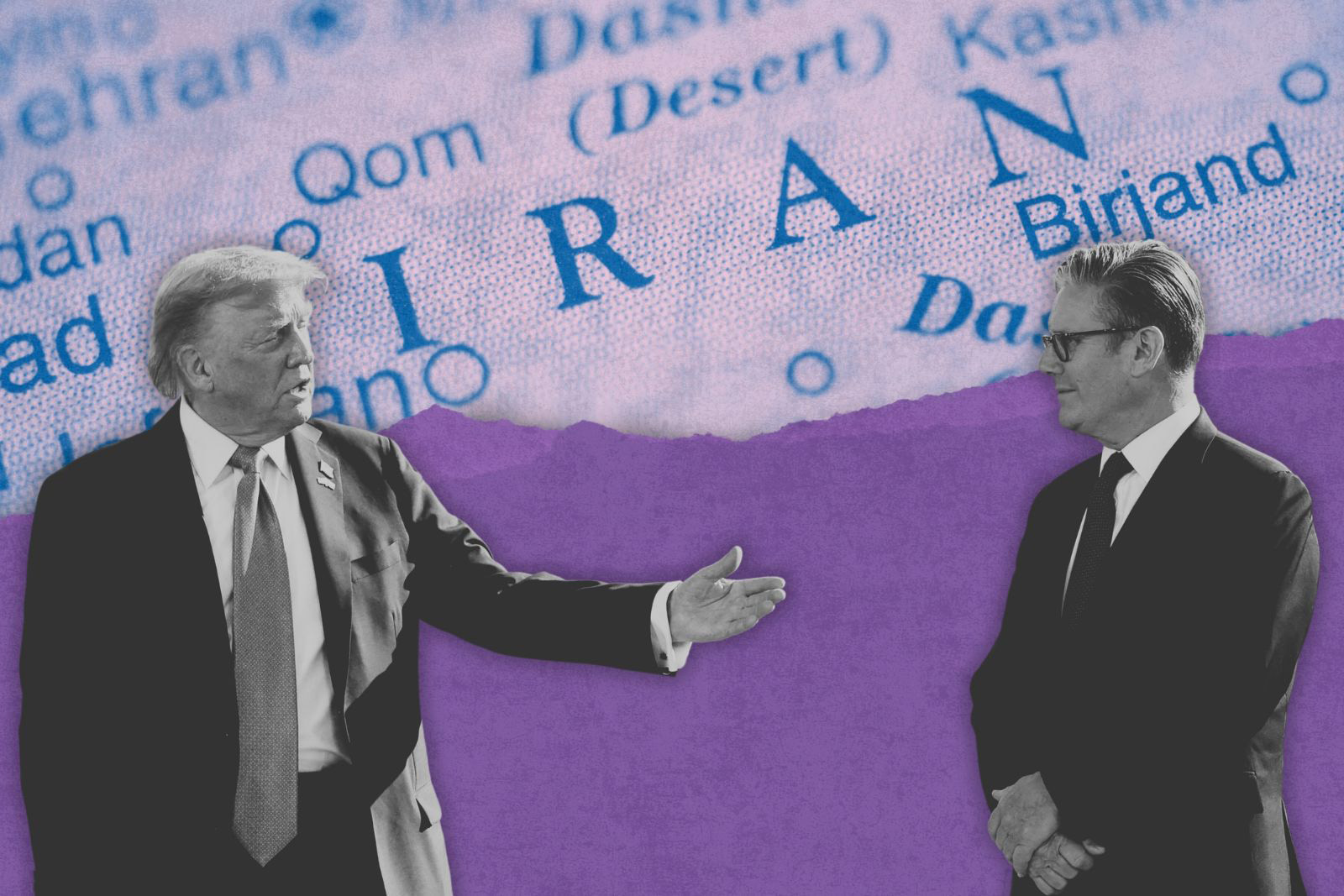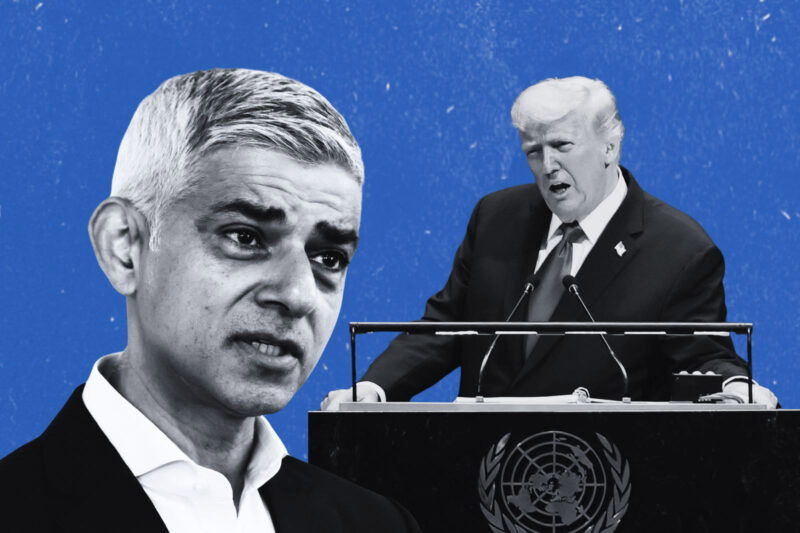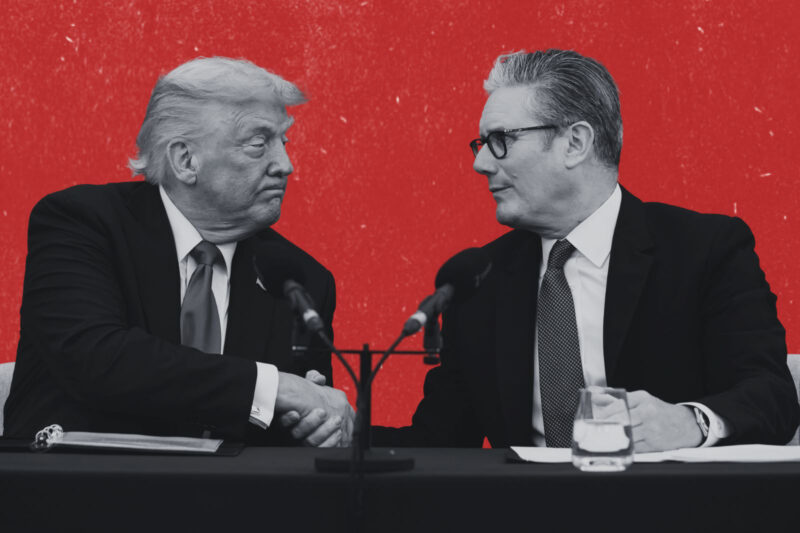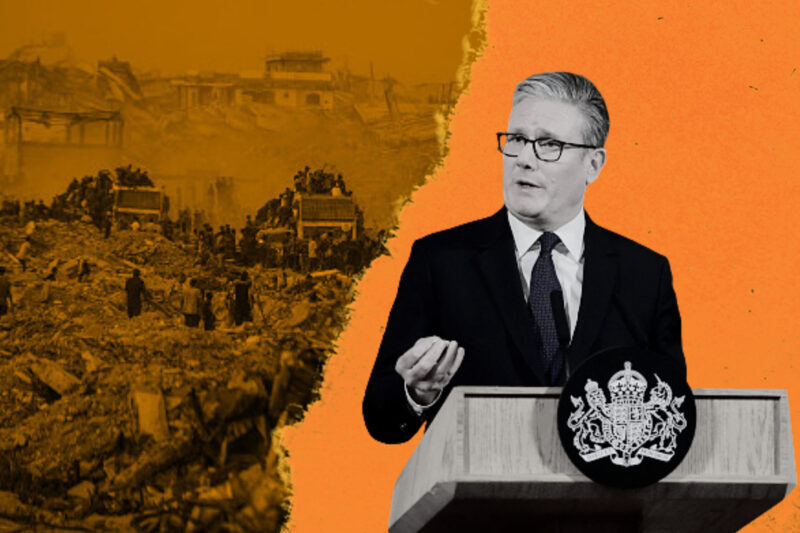MPs are sympathetic to Starmer when it comes to Iran — for now

As speculation grows that the US could become directly involved in Israel’s conflict with Iran, the UK is walking a tightrope
With each passing week, the world feels increasingly on the brink. The confrontation between Iran and Israel, already severe, is intensifying with alarming speed. And into this high-stakes global drama steps Donald Trump, arguably the most influential actor of them all, making moves as unpredictable as they are consequential.
Trump dramatically cut short his visit to the G7 summit in Canada — a move so rare from a US president that I can only recall perhaps one other time it has happened, in 2018, when Trump himself decided to leave the G7 early to meet North Korea’s Kim Jong-un.
This time round, it was thought that he had left to broker a ceasefire, perhaps invoking his well-publicised “art of the deal” instincts. French president Emmanuel Macron openly said that was what he was doing. But, instead, the message coming from Washington has been one of warning, not peacemaking. Trump urged everyone in Tehran to leave, and vice president JD Vance followed with a cryptic but ominous post on X hinting that further action from Washington could be imminent. If this is diplomatic pressure, it’s being delivered with a sledgehammer, but in any case it has fuelled speculation that the US is on the verge of getting directly involved in the conflict.
Related content
Back in Ottawa, Keir Starmer remained at the G7 and tried to project steadiness. Asked by my colleague Robert Peston if he thought the US would directly intervene in Iran, Starmer began by pointing out that Trump had signed the G7’s joint statement condemning Tehran’s nuclear escalation and saying Israel had a right to defend itself.
But Starmer made a careful distinction, insisting that this was not outright support for Israeli military action. “The statement uses the word ‘de-escalation’ and I’ve been absolutely clear that de-escalation is what is needed here,” Starmer said — clearly aware of the balancing act required between supporting an ally and appearing to endorse all out war.
Words like “de-escalation” sound increasingly hollow as missiles fly between the two nations. There is, however, some sympathy for Starmer’s situation among MPs — across the political divide.
The foreign affairs select committee heard from Iranian ambassador Seyed Ali Mousavi on Tuesday in what was by all accounts a tense and uncomfortable session. MPs grilled Mousavi on Iran’s uranium enrichment, its ties to Russia’s war in Ukraine, and the reach of its proxy forces across Lebanon, Syria and Yemen. The tone was firm and the message was clear: Tehran must come back to the negotiating table and curb its nuclear ambitions.
There’s little illusion among MPs that Iran is blameless and the country’s strategic alignment with Russia and its nuclear trajectory are deeply unsettling to Britain’s political establishment. “I think we need to stay close to the US position on this and I’m sure that’s exactly what we will do,” one senior Tory MP told me, echoing the prevailing sentiment among politicians I have spoken to across all major parties. Even those who are critical of Starmer appreciate that Trump calls the shots here and the UK is likely to follow.
But there are dissenting voices. Over the weekend, the UK redeployed several RAF jets to the region, a move we were told by government sources was one intended to “ensure regional stability”. For some MPs, however, that explanation feels too thin. “I don’t want UK weapons or jets involved in this,” one Labour MP told me. “We’ve already seen so much destruction and loss of life in Gaza. I’m worried we will see more.”
Related content
The thought of more death and destruction is a concern for many MPs. While most see Iran as a legitimate threat, there’s a sharper edge of discomfort when it comes to the continuing crisis in Gaza. Criticism of the humanitarian catastrophe unfolding there is increasingly freely expressed and there are fears about further loss of life in an already unstable region.
As June progresses, the question for western policymakers isn’t just whether Israel and Iran are heading for war — it’s what their exact role should be if that happens.
Meanwhile, Tehran watches the skies, Washington hardens its language, London positions its planes, and ordinary people in Tehran, Tel Aviv and across the Middle East brace for what may come next. Because, ultimately, it is always civilians who bear the brunt of conflicts such as these.
Shehab Khan is an award-winning presenter and political correspondent for ITV News.
 Newsletter
Newsletter















